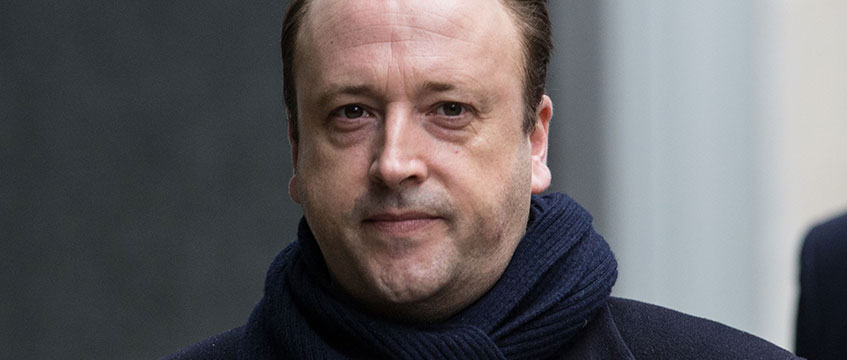Candy lawyer focuses on Holyoake’s ‘Alice in Wonderland’ approach to commercial life
Serial entrepreneur Mark Holyoake is a “dishonest” businessman with an “Alice in Wonderland” approach to commercial life who lied to property developers Christian and Nick Candy even before they lent him money, the Candy brothers’ lawyer, Tim Lord QC, told a London judge today.
Lord was making his closing arguments in a long-running case, which began in February. It is due to finish at the end of this week.
Holyoake, a serial entrepreneur, is suing brothers Nick and Christian Candy for more than £100m, claiming they “coerced” him out of millions of pounds after Christian Candy’s company CPC lent him £12m to buy Belgravia mansion Grosvenor Gardens House in late 2011.
Serial entrepreneur Mark Holyoake is a “dishonest” businessman with an “Alice in Wonderland” approach to commercial life who lied to property developers Christian and Nick Candy even before they lent him money, the Candy brothers’ lawyer, Tim Lord QC, told a London judge today.
Lord was making his closing arguments in a long-running case, which began in February. It is due to finish at the end of this week.
Holyoake, a serial entrepreneur, is suing brothers Nick and Christian Candy for more than £100m, claiming they “coerced” him out of millions of pounds after Christian Candy’s company CPC lent him £12m to buy Belgravia mansion Grosvenor Gardens House in late 2011.
The Candy brothers strongly refute the allegations and say that Holyoake was an unreliable creditor who lied to them from the start. They say that Holyoake’s allegations of coercion are fabricated.
Lord said today that, during the course of the trial, the court had learned that Holyoake misled the Candys about his wealth when asking for the money. In a net asset statement Holyoake told CPC that he was worth around £140m, when, during the hearing he accepted he was really worth close to £80m.
He said that the loan from CPC to Holyoake was agreed in one day, with very little due diligence. It was also a personal loan, so it was “based on Mr Holyoake’s personal covenant”.
The allegation that Holyoake was worth less than the amount he told CPC when asking for the loan “is devastating” to his case, Lord said. “It entirely demolishes him” he said, because it proves “he was in breach of the loan agreement from day one”.
As well as putting him in breach of the loan agreement it shows a “preparedness to lie”, said Lord. “What is CPC to make of a creditor like this?”
“This is, in fact, a debtor/creditor case in which, far from coercion, the creditor exercised a great deal of latitude.”
At any time, CPC could have sued Holyoake, but instead, they entered in “endless agreements, all at Mr Holyoake’s request” to sort the debt out without resorting to bankruptcy proceedings.
Holyoake, said Lord, has an “Alice in Wonderland approach to commercial life” in which he considers contracts to be “the start of a negotiation”.
“He is the sort of person who, if Mr Holyoake wants your money, you are his friend,” Lord said. “But if you want it back, you are a villain.”
Earlier today Holyoake’s lawyer, Roger Stewart QC, finished his closing arguments. In an exchange with Stewart, the judge hearing the case, Mr Justice Nugee, pointed out that his judgment will have to consider allegations of lies made by both sides.
“The evidence I have heard is not a very attractive story,” Nugee said. “Both sides appear to lie when it suits their commercial interests.”
“The court can’t ignore this,” he said. “I’m going to have to decide who lied when.”
“It has to be said,” Nugee said.
The lawyers will finish making their arguments on Friday, then the judge will review the evidence and write his judgment. He hasn’t said when it will be ready but, given the length of the case and the complexity of the evidence, judgment is unlikely to be before the end of May.











